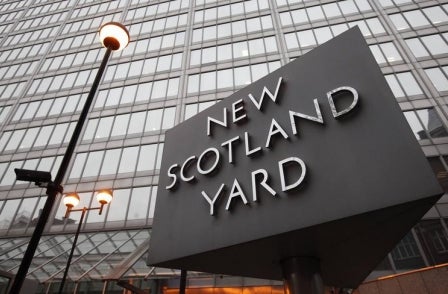
Police officers were today ordered to avoid “flirting” and accepting alcohol from journalists.
Elizabeth Filkin, the former parliamentary commissioner for standards, warned of the “fraught issue” of drinking with reporters as she outlined a new framework for officers coming into contact with journalists.
In a guide issued at Scotland Yard, officers will also be urged to keep a note of any conversation they have with journalists, she said.
In her review of press-police relations in the wake of the phone-hacking inquiry, Filkin said it was the view of many people that “information is deliberately leaked for various kinds of improper benefits”.
She said drinking with officers “may be seen as inappropriate hospitality”.
“Mixing the media with alcohol is not banned but should be an uncommon event,” her report said.
She said there were “some very serious issues” relating to contact between journalists and police which “eroded trust from the public”.
The report urges officers to “watch out” for “late-night carousing, long sessions, yet another bottle of wine at lunch – they are all long-standing media tactics to get you to spill the beans. Avoid.”
Greater openness
Commissioner Bernard Hogan-Howe welcomed the report, adding: “We need to be open about our contact with the media.”
Among Filkin’s key recommendations were that “confidential briefings should be the exception”, “all contact should be available for audit” and “the rules on gifts and hospitality should be followed and alcohol avoided”.
She added: “I recommend greater openness in providing information to the public, much of which will be through the media.
“The two new roles which I suggest – public information and integrity champions – will drive the change, making media contact permissible but not unconditional.
“Unequivocal and sustained leadership must be given.”
Her report is one of several inquiries launched surrounding the phone-hacking investigation, which unearthed allegations of payments to officers from journalists.
Filkin’s findings on “Ethical Issues Arising From The Relationship Between Police and Media” also come as Lord Leveson’s inquiry into press standards is poised to focus on media-police relations.
Last month, Her Majesty’s Inspectorate of Constabulary (HMIC) said officers should be banned from accepting free tickets to high-profile events such as Wimbledon, the FA Cup Final or pop concerts.
Sir Denis O’Connor, the chief inspector of constabulary, said accepting such hospitality risked creating the perception that police officers had conflicts of interest, damaging the service’s reputation in the eyes of the public.
Filkin was called in by former Metropolitan Police commissioner Sir Paul Stephenson to examine ethical considerations that should underpin relations.
Sir Paul resigned in July amid allegations about the force’s PR contract with Neil Wallis, the former deputy editor of the News of the World, who was later arrested on suspicion of phone-hacking.
Lack of guidance
Today Filkin highlighted criticism of senior officers as she said the force “has not communicated effectively enough with Londoners”.
“Many are convinced that certain sections of the news media have had better access to information than others, which has eroded trust in the independence and impartiality of the MPS,” she wrote.
She added: “I am concerned by the extent to which police officers and staff feel that some of their senior leaders abide by a different set of rules.
“There has been wide variation in how the senior team interpreted policy on dealing with the media and receiving gifts and hospitality… There has been no clear standard set by the senior team for police officers and staff to use as a guide for their own behaviour and in some instances the standards set have been poor and have led to consequent damage.”
- To contact the Press Gazette newsdesk call 020 7336 5327 or email pged@pressgazette.co.uk
Email pged@pressgazette.co.uk to point out mistakes, provide story tips or send in a letter for publication on our "Letters Page" blog
